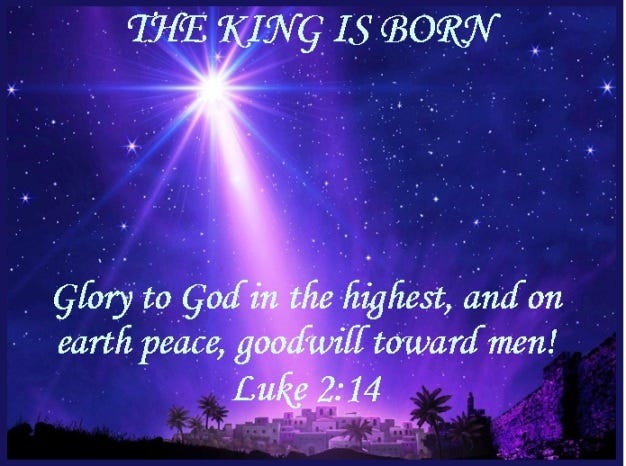‘The Gloria’ Is a Great Prayer of Praise
'THE MERRY CATHOLIC' -- 'And suddenly there was a multitude of the heavenly host...'
When you’re at Mass, do you pay attention to the Gloria? Early in the Mass, right after the Penitential Act (“Lord have mercy, Christ have mercy, Lord have mercy”), we proclaim the Gloria. It’s usually sung, but occasionally recited.
There are two seasons during the Church’s liturgical year when the Gloria is omitted: Advent and Lent. Those two seasons are more somber in nature, so the festive and celebratory song of praise is set aside. Usually for me, on the first Sunday of either Advent or Lent, the Gloria is conspicuous by its absence. We’ll go right from the Penitential Act to the priest saying, “Let us pray,” and then on to the first reading. I’ll think to myself, Wait a minute. Did I miss something? This feels odd. And then I’ll remember, Oh yeah, no Gloria during Advent and Lent.
The best part of this liturgical practice is when Christmas and Easter finally arrive, and we once again can belt out the Gloria in all its, uh, glory. At Christmas, the choir usually sings the Gloria to the tune of “Angels We Have Heard On High,” with it’s awesome, “Glo-oh-oh-oh-oh, Oh-oh-oh-oh-oh, Oh-oh-oh-oh-oh-oh-ree-uh; In ex-cel-sis De-o!”
Not to brag, but whenever I hear that song, either at church or on the radio, I nail the bass part. It’s one of the few harmonies that’s right in the sweet spot of my 6-note-range.
The Gloria is a powerful song of praise. The first line is right from the Nativity story, when the angels lit up the sky while rejoicing because of the newborn Messiah. In the gospel of Luke, chapter 2, we read: “And suddenly there was a multitude of the heavenly host with the angel, praising God and saying: ‘Glory to God in the highest and on earth peace to those on whom his favor rests’.”
(Side note: I’m sure the phrase, “...on whom his favor rests,” is probably a more accurate translation of the original Greek. But come on. The traditional English phrasing we all grew up with sounds so much better. Thankfully the Gloria at Mass declares: “Glory to God in the highest, and on earth peace to people of good will.” Don’t get me started on modern Bible translations that squeeze the majestic poetry out of phrases that once were embedded in our culture.)
The Gloria was proclaimed in liturgical worship as early as the 4th century A.D. It’s pretty cool to realize that people have been praising God with these exact words for over 1600 years. Half of the Gloria offers praise to God the Father, and the other half focuses on Jesus the Son of God. The Holy Spirit gets a quick mention in the very last sentence: “...you alone are the Most High, Jesus Christ, with the Holy Spirit, in the glory of God the Father, Amen.”
The earliest manuscripts of the Gloria do not mention the Holy Spirit at all. This is strong evidence of how old the Gloria really is. As everyone knows, the personhood of the Holy Spirit within the unity of the Trinity was not fully understood and defined by the Church until the Council of Constantinople in 381 A.D. Any texts of the Gloria that refer only to God the Father and Jesus the Son are thought to originate before that Council. (I’m kidding, of course, when I say, “As everyone knows.” Trust me, I had to look it up.)
Besides being something we recite or sing (or pretend to sing) during Mass, the Gloria, at its heart, is simply a fantastic prayer of praise. It doesn’t have to be used exclusively at Mass. Whenever we are in the mood to praise our Creator (pro tip: this should be ALL the time), we can’t go wrong by declaring the Gloria. Many times throughout each day, we all should proclaim, either out loud or in our hearts, “Glory to God in the highest!”
(These “Merry Catholic” essays are featured on WJMJ, 88.9 FM, the radio station for the Archdiocese of Hartford, CT.)






